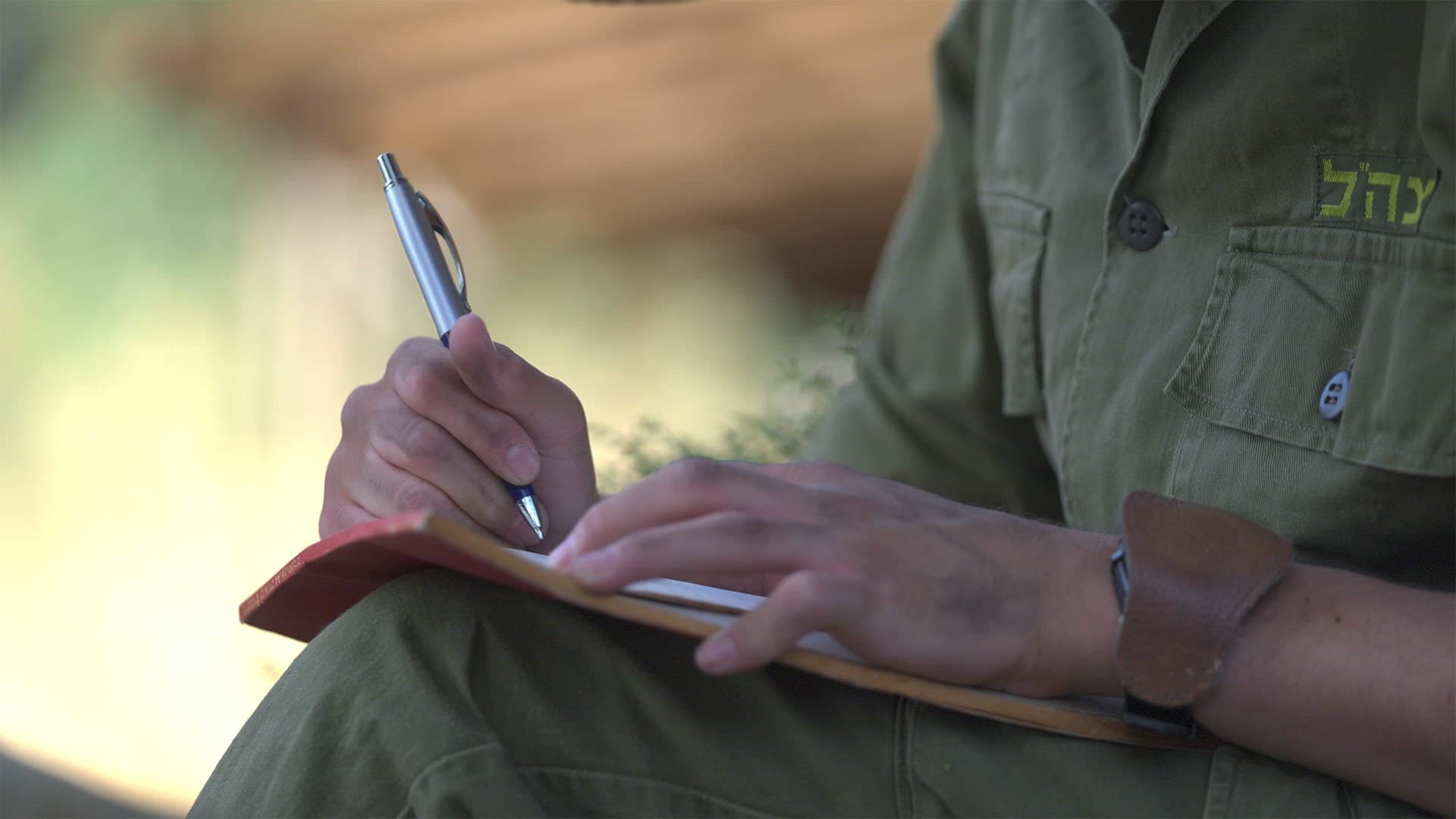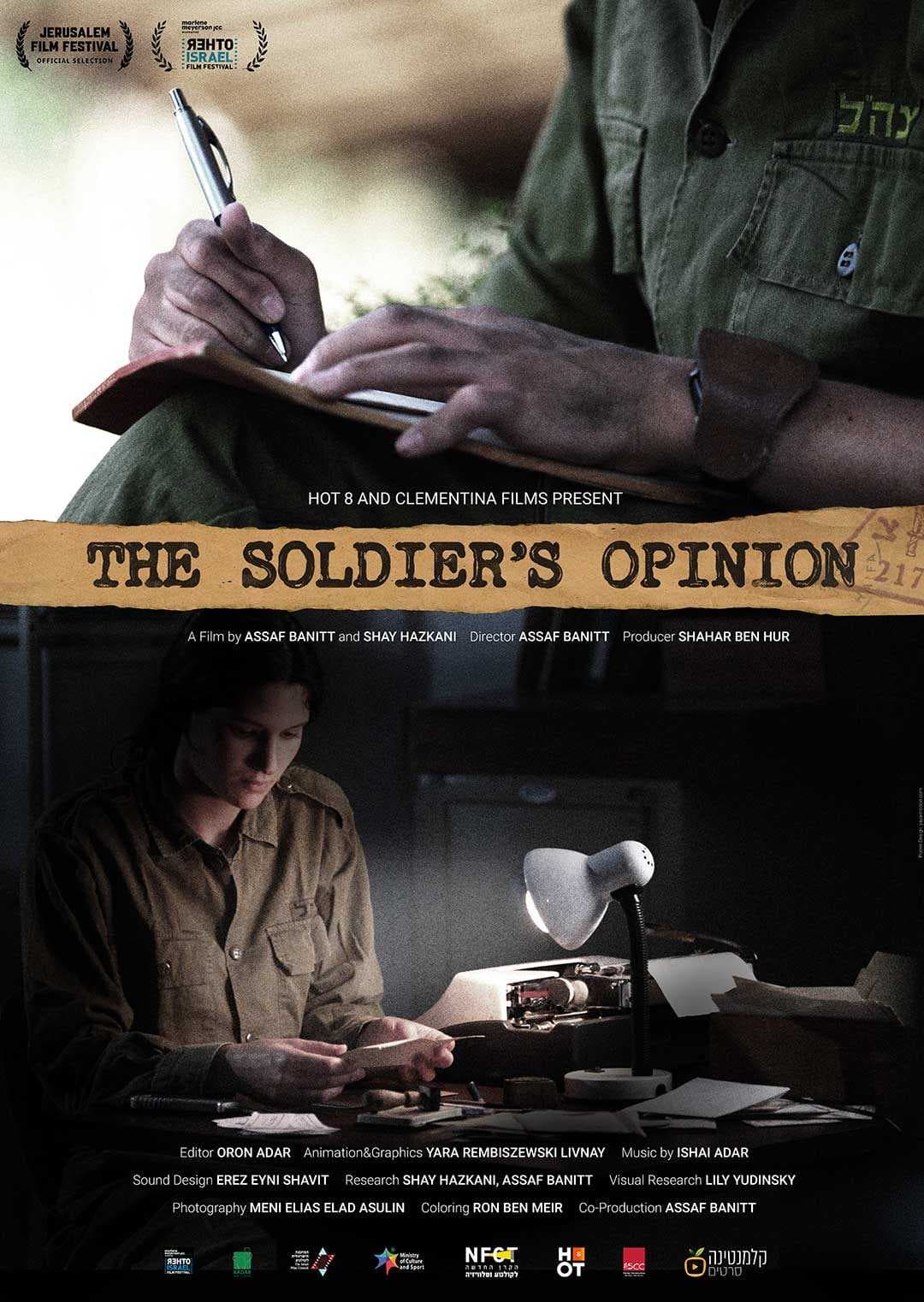New Documentary Captures ‘The Soldier’s Opinion’
Film Based on Professor’s Research Sheds Light on Five-Decade ‘Big Brother Apparatus’ in Israel

For half a century, millions of letters from Israeli military troops were systematically analyzed to give top leadership insight into "The Soldier's Opinion"—the title of a new film film based on a UMD researcher's work.
Photo by Yaron Weinstein
Words of longing to distant lovers. Complaints about rotten food and ill health. Admissions of doubt about the motivations for war.
For soldiers fighting on the front lines across the world, letters have long been a way to share personal reflections with those back home.
But for five decades in Israel, it wasn’t just friends and loved ones who pored over soldiers’ most private writings. From 1948 to 1998, the top-secret Postal Censorship Bureau intercepted and copied soldiers’ outgoing personal letters and compiled the findings in biweekly briefings for the country’s military leadership.
That bureau’s work is the subject of a new documentary co-created by University of Maryland Associate Professor of History and Jewish Studies Shay Hazkani. The 55-minute film, “The Soldier’s Opinion,” features both the letter writers and the former censors discussing the impact of the bureau’s intrusion—sometimes even face-to-face with each other. Directed by award-winning Israeli film director Assaf Banitt, the film will be screened at UMD tomorrow.

“This unit was a control mechanism, part of a ‘Big Brother’ apparatus,” Hazkani said. “And as you can see when you watch the film, it can be difficult for people to grapple with the fact that this existed.”
In 2007, Hazkani was a TV journalist conducting research in the archives of the Israel Defense Forces (IDF) when he noticed a reference to the views of rank-and-file soldiers included in an ongoing report called The Soldier’s Opinion. After learning the archived reports were classified, he embarked on what he describes as a “small crusade” to get access. A year—and extensive litigation—later, he received copies of several hundred letters. It would take six more years to get access to more of the trove, during which time he decided to pursue academia in the United States.
For 15 years, Hazkani has been endlessly fascinated by the tens of thousands of letters in the collection and the stories and voices they capture. The censorship unit, staffed mostly by female soldiers, flagged topics of interest to army commanders, like Israeli politics, the Israeli-Palestinian conflict, homosexuality in the ranks and drug use. In the 1950s, more than 100,000 letters went through the IDF each month, all of which were first sent to censorship bases.
“I remember that first moment, how truly exciting it was to read not what a leader was saying in a very tailored speech, but rather, ordinary people with raw emotion,” Hazkani said. “Reading these letters I felt that dissenting voices were kind of kept from us—in the education system, in the history books—and so my larger goal has been to bring those voices forward.”
In 2013, after Hazkani wrote a story for Haaretz newspaper based on letters sent from soldiers during the Yom Kippur War 40 years earlier, Banitt approached him with interest in turning his academic research into a documentary. Throughout the nearly decade-long collaboration that followed, Hazkani and Banitt worked to transform the written letters into a visual story that could appeal to broad audiences. (Hazkani’s 2021 book “Dear Palestine” also used the letters to capture a range of previously untold Israeli and Arab perspectives of the 1948 War.)
In a review, the Israeli news website Walla lauded the film’s interviews and the way the filmmakers “manage to bring forward a few of the unit's veterans...[who] speak in a truthful and candid manner, aware of what they did and with a sense of self-criticism." The film, it said, “does not have a single boring moment.”
In one scene, Sinai Peter, who served in the army between 1971–74, cries as he reads one of his letters from the time contemplating the dehumanizing ways he saw Israeli soldiers treat Arabs they encountered. He admits in the letter that he’d considered fleeing, or worse—ending his own life.
In the next scene, Peter sits across from the former officer who read those words decades earlier, Adi Tal. She tells him how his letter was shared with leadership as an example of waning soldier morale.
“I was very curious to meet you,” he tells her, “since you rummaged through my innards.”
“I could never do a job like that,” he adds, creating an uncomfortable moment.
Tal admits her youth and naivete at the time, and how she now views the work as “invasive.” Ultimately, the two both express exasperation toward the government’s approach.
Hazkani, who came to UMD in 2016 after receiving his Ph.D. at NYU, said “The Soldier’s Opinion,” aside from being artistically compelling, invites new perspectives and nuance into modern Israeli history, including as it relates to ongoing war and conflict. And it underscores the persistent disconnect between the country’s leaders and its people. Except for a few minor examples, none of the letters ever changed policy.
“We learned this was not the purpose,” Hazkani said. “The idea of the bureau wasn’t to make society better or to solve anything. It was there just to make sure the pot doesn’t overflow. It can simmer, simmer, simmer—but it can’t overflow.”